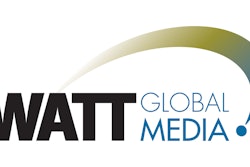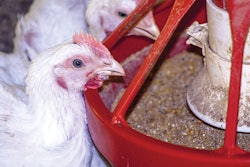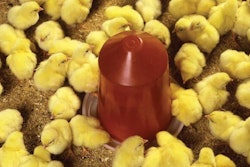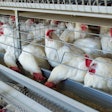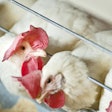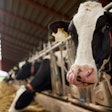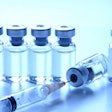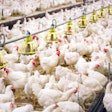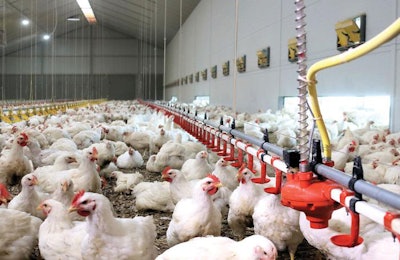
The World Health Organization (WHO) is recommending that livestock and poultry producers stop using antibiotics routinely to promote growth and prevent disease in healthy animals.
The WHO guidelines on use of medically important antimicrobials in food-producing animals, released on November 7, aim to help preserve the effectiveness of antibiotics that are important for human medicine by reducing their unnecessary use in animals. In some countries, approximately 80 percent of total consumption of medically important antibiotics is in the animal sector, largely for growth promotion in healthy animals.
Over-use and misuse of antibiotics in animals and humans is contributing to the rising threat of antibiotic resistance, according to WHO. Some types of bacteria that cause serious infections in humans have already developed resistance to most or all of the available treatments, and there are very few promising options in the research pipeline.
“A lack of effective antibiotics is as serious a security threat as a sudden and deadly disease outbreak,” said Dr Tedros Adhanom Ghebreyesus, director-general of WHO. “Strong, sustained action across all sectors is vital if we are to turn back the tide of antimicrobial resistance and keep the world safe."
A systematic review published in The Lancet Planetary Health found that interventions that restrict antibiotic use in food-producing animals reduced antibiotic-resistant bacteria in these animals by up to 39 percent. This research directly informed the development of WHO’s new guidelines.
WHO recommends reduction in all classes of medically important antibiotics
WHO strongly recommends an overall reduction in the use of all classes of medically important antibiotics in food-producing animals, including complete restriction of these antibiotics for growth promotion and disease prevention without diagnosis. Healthy animals should only receive antibiotics to prevent disease if it has been diagnosed in other animals in the same flock, herd, or fish population, according to the recommendations.
Where possible, sick animals should be tested to determine the most effective and prudent antibiotic to treat their specific infection, WHO adivses. Antibiotics used in animals should be selected from those WHO has listed as being “least important” to human health, and not from those classified as “highest priority critically important”. These antibiotics are often the last line, or one of limited treatments, available to treat serious bacterial infections in humans.
"Scientific evidence demonstrates that overuse of antibiotics in animals can contribute to the emergence of antibiotic resistance," said Dr Kazuaki Miyagishima, director of the Department of Food Safety and Zoonoses at WHO. "The volume of antibiotics used in animals is continuing to increase worldwide, driven by a growing demand for foods of animal origin, often produced through intensive animal husbandry.”
Many countries have already taken action to reduce the use of antibiotics in food-producing animals, WHO stated. For example, since 2006, the European Union has banned the use of antibiotics for growth promotion. In the U.S., the Veterinary Feed Directive (VFD) took effect in the beginning of 2017. Under the VFD, a signed and written authorization from a licensed veterinarian is required to purchase and use VFD antibiotics on and in animal feed.
Antibiotic alternatives
Alternative options to using antibiotics for disease prevention in animals that are recommended by WHO include improving hygiene, better use of vaccination, and changes in animal housing and husbandry practices.
Comprehensive resource for antibiotic-free poultry production available
A new collection of exclusive articles, blogs, infographics and videos on antibiotic-free poultry production, by trusted WATT Global Media editors and industry experts, equip poultry producers and marketers with information to help them make critical business decisions. Purchase your copy.


